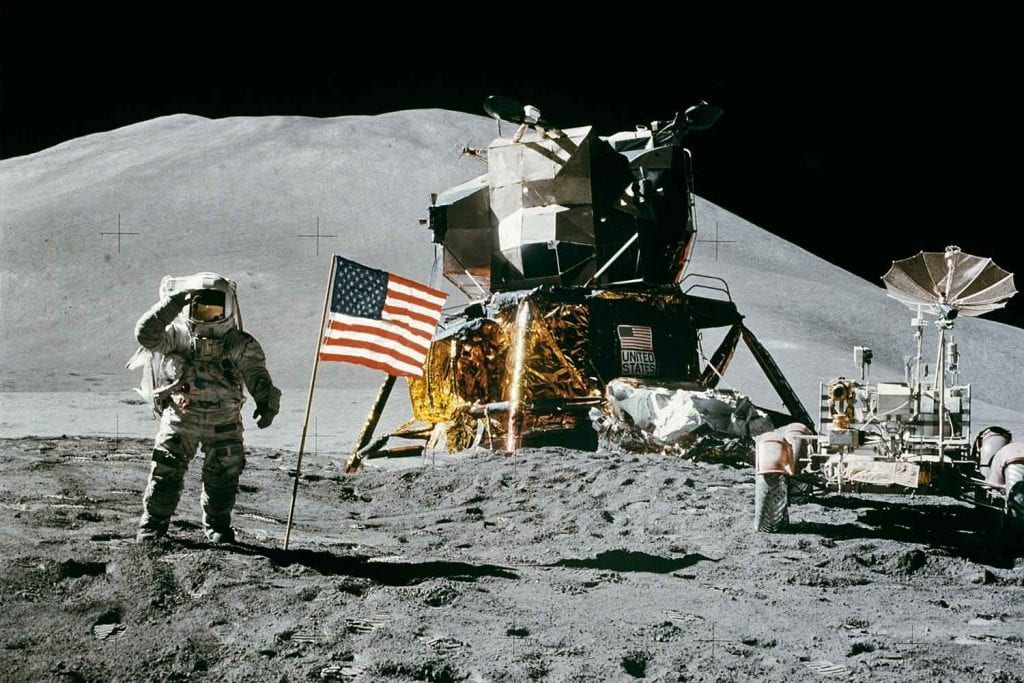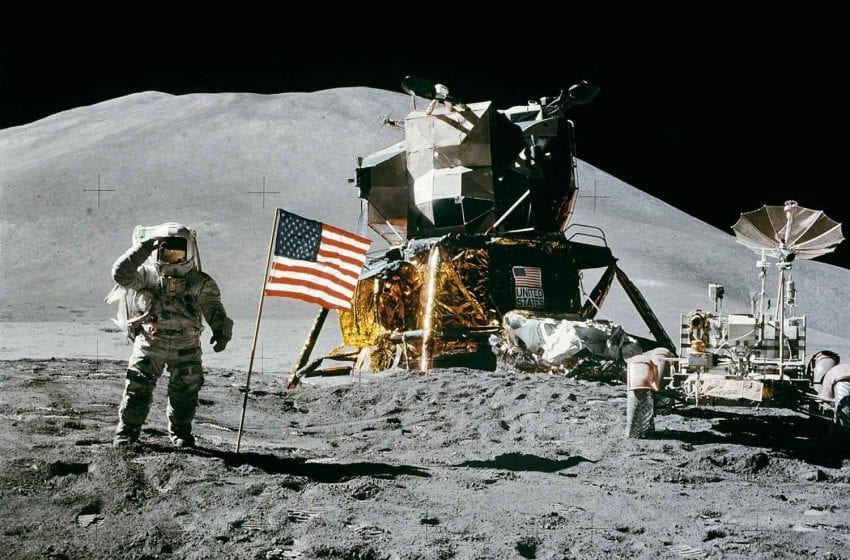
Some thoughts on tobacco taxation
By George Gay
Late last year, I enjoyed watching several documentaries celebrating the 50th anniversary of the first moon landing of a manned spacecraft. It was fascinating for somebody such as I, who was a young adult when the first landing occurred on July 20, 1969, to have a mirror held up to a life that I once saw as normal and to be able to compare it with what is normal to me now.
There have been many changes—some of them good, such as those to do with diversity and certain aspects of technology, and some of them bad, such as those to do with the environment and, though some might disagree with me here, the average weight of people. Some changes, such as those to do with fashion, seem to have been neither good nor bad, just cyclical, if I also consider the intervening years. As I believe Oscar Wilde once observed: Fashion is a form of ugliness so absolutely unbearable that we have to alter it every six months.
One of the biggest changes, however, has had to do with tobacco smoking. According to the documentaries that I saw, which often focused on mission control, the levels of smoking in the U.S. in 1969 could be described only as heroic—in keeping, I suppose, with the way in which the challenges of space exploration were approached. As far as I could see, the controllers smoked cigarettes, pipes and cigars while they were working and, especially in the case of cigars, when they celebrated the end of a successful mission. Some of the astronauts’ wives were shown smoking at home while their husbands were away, and, when the astronauts returned, people smoked through the various post-mission press conferences. Let’s face it, the rockets the astronauts went up in resembled cigars.
These days, I guess, mission control would be tobacco smoke-free, and most people would see this as a good thing. But perhaps it’s true that you win some, you lose some. On the basis that if A follows B, then A might—but only might—be caused by B. Is one result of the reduction in smoking the expansion of the waistlines that is so evident from comparing film from 1969 with observation of people today? Did we, in not preparing properly, simply swap one problem for another?
And is there another possible cause and effect issue? It was simply amazing how quickly the euphoria of 1969 faded as funding for the space program was reduced and exploration took a back seat. Might the story have been different if people had kept smoking at the rate they smoked in 1969 and, thereby, kept supplying tax dollars, and, especially, if federal government cigarette taxes had been increased from what, in 1969, had been a relatively low base?
Of course, you need to ask yourself whether it would have been a good thing for people to have kept smoking to help keep the space program fully on track. I guess that’s a tricky moral question that could be put this way: Should one group of people—basically, the financially poor—shorten their lives so that another group—basically, the self-styled elite—might be able to escape to another planet once we’ve all trashed this one? But perhaps that question has too much of a payload.
And anyway, I’m not convinced that the question of continued space exploration hinged on taxation. I think the push toward 1969 was fueled by foresight and the presence in the White House of a man, former President John F. Kennedy, with the charisma to take others along with his ambition, even after his untimely death. In the 1960s, we were probably still hanging on to the idea—possibly only by our fingertips—that science, discovery, exploration—call it what you like—was something worth following just to see where it led.
Since then, we have been plagued by leaders around the world whose vision has not lifted above the bottom line. Will this science stuff produce more powerful weapons, they ask, and will it make a profit sufficient to satisfy the greed of those who will make the donations to help keep us in power? Generally, in my view, the world has been dragged down by mean-spirited leaders lacking in imagination, leaders who would rather point their rockets at each other than at the stars, who would rather go to war than to Mars.
Crumbs, I think I’ve lost the thread. Where was I? Oh yes, taxation …
Taxation is often seen as causing a split between those who consider it a burden and those who consider it a privilege, but, in reality, there is also the great mass of people who bridge these extremes—who often moan about paying taxes but who also rejoice when they see evidence that their tax money has been used to help those in need or to help fund a mission to new frontiers and ideas. I tend to think that paying taxes is a privilege, but I must admit to being incensed at some uses tax revenue is put to, such as making up the shortfall caused by the inadequate wages paid by some of the richest companies in the world. It seems that some of these companies will soon be flying into space—low orbit, high profit stuff, of course—on my taxes.
Of course, there are many anomalies in the field of taxation, which seems often to slip out of kilter when so-called sin taxes are applied. When you consider that sin taxes have in the past been used to fund wars, you need to question the nature of sin. I mean, you would probably be locked up if you suggested taxing weapons and war to help fund people’s smoking habits. And when taxes are contributed mostly by the financially poor for projects that will benefit the whole community, including the financially well-off, you need to question whether this is the sort of redistribution you can support.
And the idea of a sin tax can become even more problematic when applied to something such as e-liquids, given that these are products designed to help people transition from the—how can I put this?—original sin of smoking. Sin taxes at this point become joy taxes. You look like you’re having a good time; you need to pay some taxes.
In fact, so far, the application of taxes to e-liquids has not met with a great deal of success, at least in the countries of the EU that have tried this on, according to a presentation given to the electronic nicotine-delivery systems (ENDS) conference held in London, U.K., in June. Delegates were told that while Estonia managed to collect almost all the e-liquid taxes it was targeting in 2018, Romania managed to collect only about a third of its targets in 2017 and 2018, and Finland managed only about 10 percent in 2017. Italy’s success rate was down at about 2 percent in 2017 and at about 3 percent in 2018. Partly, there seems to be an inverse relationship between what is aimed at and the percentage of that target that is collected. So, in 2018, Estonia sought only €1.3 million ($1.46 million); in 2017 and 2018, Romania sought €5 million and €6.8 million, respectively; and in 2017, Finland targeted €9.1 million. Only Italy seemed to be chasing meaningful amounts of revenue: €227 million in 2017 and €216.5 million in 2018. And look what happened there.
That tax collection has not worked out so far is apparently down to the fact that it is reasonably easy to circumvent these imposts, and the conference seemed to be a bit sniffy about e-liquid tax circumventions, suggesting that such activities allowed irresponsible operators to prosper at the expense of the responsible. You can see the delegates’ point, but tobacco, the precursor of nicotine products, has long been a hive of tax circumventions, avoidance and evasions, from top to bottom, from side to side, and to pick on e-liquids seems unbalanced. If we want to talk about tax circumventions, avoidance and evasions, all tobacco and nicotine stakeholders should put their cards on the table.
A lot of people, not only the libertarians among us, might think that taxing a product just because it creates joy is unfair, but you need to take care how far you go along with such thinking. Some people like to make out that sin taxes lie on a slippery slope down which one slides from tobacco and alcohol to fast food and sugar. But this is a slippery argument because there is a wealth of difference between tobacco and alcohol on the one hand and fast food and sugar on the other. And that difference has to do largely with age limits. In many countries (probably most), tobacco and alcohol may not be bought by people under a certain age, and those of an age who may buy these products are not allowed to supply them to underage individuals. This does not apply, as far as I know, in the case of fast food and sugar, so young people may buy these products, and parents may give them to their children to consume. Remember here that despite what we are told ad nauseum, not all parents know what’s best for their children and are willing to do it.
The problem, as far as I can see, is that in many parts of the world, there is an obesity problem among children, and, as far as I am told, once a child is obese, she has great difficulty in freeing herself of that obesity and all that it entails later in life. That means that parents are bequeathing to their offspring a problem that those children could carry throughout their lives, and that’s not right. If young people have to wait until they are a certain age before they choose to risk damaging their health by smoking tobacco and drinking alcohol, it seems logical that they should at least be protected from having unsuitable foods foisted upon them before they reach an age when they are able to make their own choices. Now, I don’t know whether that delay should be encouraged by taxation or some other method. My gut feeling is that taxation on its own would not be the best method, but something needs to happen.
And, certainly, that’s not to say that additional taxes should not be applied to high-sugar, high-fat food and drink, even if they don’t help save the obesity problem. Perhaps it’s time to reverse things and help fund another space mission with those very taxes? It would be fitting, would it not, to have rockets flying off into space powered by the high-octane fuels of sugar and fat.


